第39章 CHAPTER X. THE KING IN STRELSAU(2)
He made a hasty supper; then they talked together, Rudolf smoking his cigar. Eleven came and went. It was not yet time. My wife opened the door and looked out. The hall was dark, the door locked and its key in the hands of the butler. She closed the door again and softly locked it. As the clock struck twelve Rudolf rose and turned the lamp very low. Then he unfastened the shutters noiselessly, raised the window and looked out.
"Shut them again when I'm gone," he whispered. "If I come back, I'll knock like this, and you'll open for me."
"For heaven's sake, be careful," she murmured, catching at his hand.
He nodded reassuringly, and crossing his leg over the windowsill, sat there for a moment listening. The storm was as fierce as ever, and the street was deserted. He let himself down on to the pavement, his face again wrapped up. She watched his tall figure stride quickly along till a turn of the road hid it. Then, having closed the window and the shutters again, she sat down to keep her watch, praying for him, for me, and for her dear mistress the queen. For she knew that perilous work was afoot that night, and did not know whom it might threaten or whom destroy.
From the moment that Mr. Rassendyll thus left my house at midnight on his search for Rupert of Hentzau, every hour and almost every moment brought its incident in the swiftly moving drama which decided the issues of our fortune. What we were doing has been told; by now Rupert himself was on his way back to the city, and the queen was meditating, in her restless vigil, on the resolve that in a few hours was to bring her also to Strelsau.
Even in the dead of night both sides were active. For, plan cautiously and skillfully as he might, Rudolf fought with an antagonist who lost no chances, and who had found an apt and useful tool in that same Bauer, a rascal, and a cunning rascal, if ever one were bred in the world. From the beginning even to the end our error lay in taking too little count of this fellow, and dear was the price we paid.
Both to my wife and to Rudolf himself the street had seemed empty of every living being when she watched and he set out. Yet everything had been seen, from his first arrival to the moment when she closed the window after him. At either end of my house there runs out a projection, formed by the bay windows of the principal drawing-room and of the dining room respectively. These projecting walls form shadows, and in the shade of one of them--of which I do not know, nor is it of moment--a man watched all that passed; had he been anywhere else, Rudolf must have seen him. If we had not been too engrossed in playing our own hands, it would doubtless have struck us as probable that Rupert would direct Rischenheim and Bauer to keep an eye on my house during his absence; for it was there that any of us who found our way to the city would naturally resort in the first instance. As a fact, he had not omitted this precaution. The night was so dark that the spy, who had seen the king but once and never Mr. Rassendyll, did not recognize who the visitor was, but he rightly conceived that he should serve his employer by tracking the steps of the tall man who made so mysterious an arrival and so surreptitious a departure from the suspected house. Accordingly, as Rudolf turned the corner and Helena closed the window, a short, thickset figure started cautiously out of the projecting shadow, and followed in Rudolf's wake through the storm. The pair, tracker and tracked, met nobody, save here and there a police constable keeping a most unwilling beat. Even such were few, and for the most part more intent on sheltering in the lee of a friendly wall and thereby keeping a dry stitch or two on them than on taking note of passers-by. On the pair went. Now Rudolf turned into the Konigstrasse. As he did so, Bauer, who must have been nearly a hundred yards behind (for he could not start till the shutters were closed) quickened his pace and reduced the interval between them to about seventy yards. This he might well have thought a safe distance on a night so wild, when the rush of wind and the pelt of the rain joined to hide the sound of footsteps.
But Bauer reasoned as a townsman, and Rudolf Rassendyll had the quick ear of a man bred in the country and trained to the woodland. All at once there was a jerk of his head; I know so well the motion which marked awakened attention in him. He did not pause nor break his stride: to do either would have been to betray his suspicions to his follower; but he crossed the road to the opposite side to that where No. 19 was situated, and slackened his pace a little, so that there was a longer interval between his own footfalls. The steps behind him grew slower, even as his did; their sound came no nearer: the follower would not overtake. Now, a man who loiters on such a night, just because another head of him is fool enough to loiter, has a reason for his action other than what can at first sight be detected. So thought Rudolf Rassendyll, and his brain was busied with finding it out.